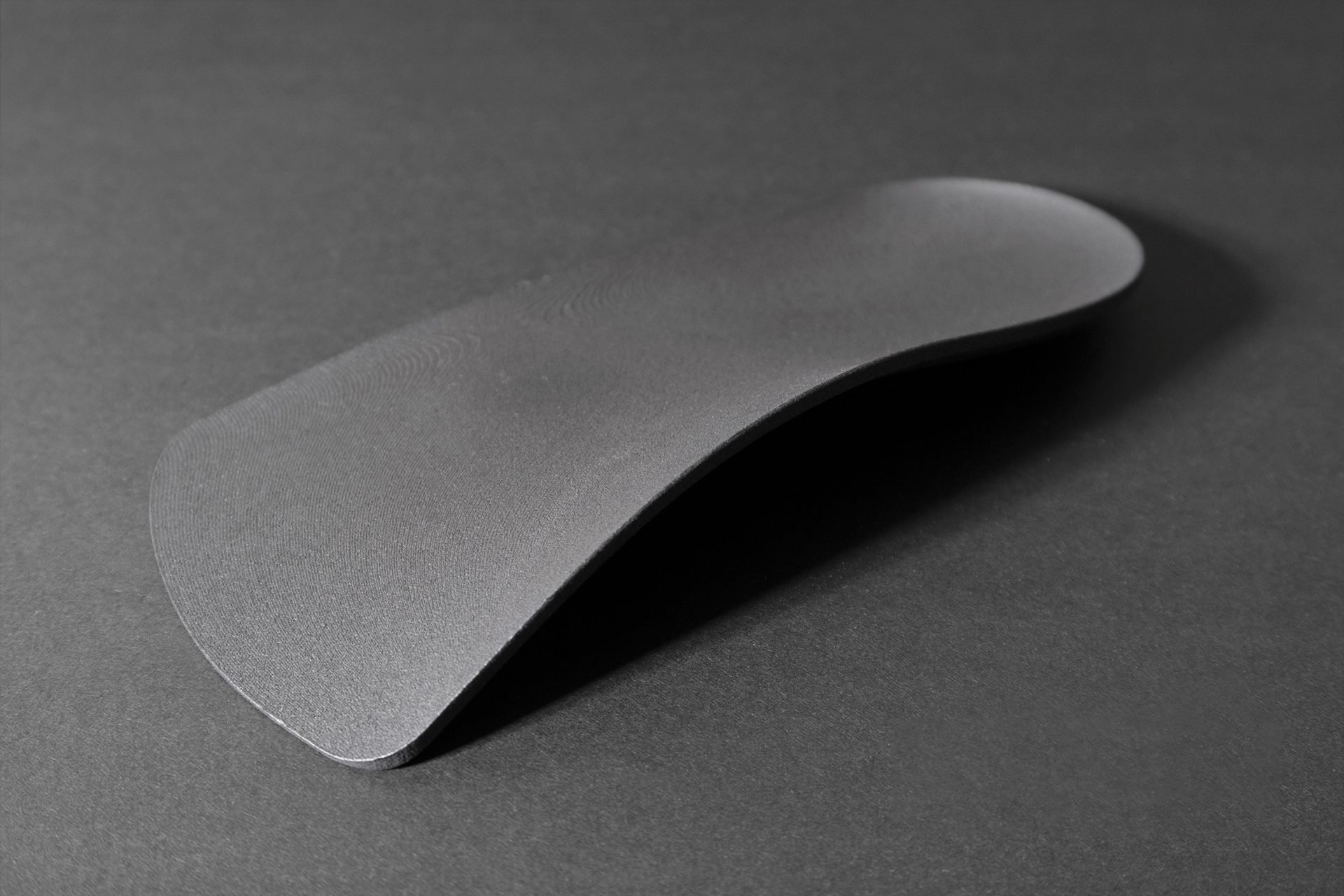Over time, these sensations may fade, resulting in a gradual loss of feeling. However, rapid and severe sensory loss accompanied by intense foot and ankle nerve pain could indicate a chronic condition like plantar fasciitis.
Seek a professional assessment from a podiatrist to accurately diagnose and manage your foot neuritis condition to prevent long-term nerve damage that can significantly affect daily life.
Foot neuritis refers to inflammation of the nerves and often presents as pain, tingling, or burning caused by inflammation.
Most peripheral foot neuropathies, such as plantar nerve neuritis, initially affect sensation. It can originate in the feet and extend to the hands, causing burning and pins and needles stinging sensations.
Different Foot & Ankle Nerve Pain Conditions
Foot and ankle nerve pain is a more general term that includes any pain related to nerves in the foot and ankle area. It can refer to various conditions, including plantar nerve neuritis, as well as other nerve-related issues like peripheral neuropathy or nerve compression syndromes:
- Foot Neuritis: Foot neuritis is a broad term indicating inflammation of nerves in the foot. It is a general description that can include various specific nerve-related conditions, such as plantar nerve neuritis or other nerve-related issues.
- Medial and Lateral Plantar Nerve Entrapment: Plantar nerve entrapment refers to the trapping or compression of the plantar nerves, leading to pain and discomfort. This is similar to plantar nerve neuritis but specifically emphasizes the entrapment aspect of the condition.
- Plantar Nerve Neuritis: This term specifically refers to the inflammation of the plantar nerves in the foot. It involves the irritation or impingement of these nerves, often caused by compression from the surrounding soft tissues or injuries to other foot structures. Lateral plantar nerve pain symptoms may include chronic pain, numbness, and tingling in the foot.
All of these terms are related to nerve-related problems in the foot and ankle region, with some variations in focus and specificity. Plantar nerve neuritis and plantar nerve entrapment are more specific conditions that highlight the involvement of the plantar nerves. Foot neuritis is a broader term encompassing nerve-related issues in the foot and ankle area, including plantar nerve neuritis or other nerve-related conditions.
In-Depth Look into Plantar Nerve Neuritis
Plantar nerve neuritis is a type of foot neuritis. Peripheral neuropathy is a condition characterised by damage or dysfunction in the peripheral nerves, which are located outside the brain and spinal cord. Plantar nerve neuritis explicitly affects the nerves in the plantar region of the foot, leading to inflammation and pain.
There are numerous peripheral neuropathies and medial or lateral plantar nerve pain causes. Among the most common is diabetes, while alcohol abuse, Vitamin B deficiencies, and certain medications and toxins can also lead to plantar neuropathies. Additionally, autoimmune diseases and inherited conditions can be co-factors to consider various possible causes when diagnosing and treating these conditions.
The two most common types of plantar nerve neuritis are medial and lateral plantar nerve entrapment. These two conditions differ in that different nerve clusters within the foot are affected.
The medial plantar nerve supports the inside of the foot, extending towards the first, second and third toes. Patients with medial plantar nerve neuritis may experience tingling in the first and second toes, along with the parts of the sole. This condition is also known as jogger’s foot, as it is frequently found in runners who repeatedly impact the soles of their feet, potentially inflaming the plantar.
The lateral plantar nerve supports the outside of the foot, stretching into the fourth and fifth toes. These different purposes affect how plantar nerve neuritis affects the foot. People with lateral plantar nerve neuritis will likely experience tingling in the fourth and fifth toes and pain near the ankle and heel.
Though the symptoms are different, both conditions can deteriorate similarly, leading to permanent damage of the nerves if not adequately treated.
Risk Factors and Causes of Neuritis of the Plantar Nerve
Common symptoms of plantar nerve neuritis include chronic pain, numbness and tingling in the foot. The specific location of numbness depends on the affected nerve, such as the medial or lateral plantar nerve. Some patients may experience increased pain in the arch or sole after strenuous activity or when attempting to stand on their toes. This discomfort can be caused by continuous irritation around the ankle area due to the surrounding soft tissues.

Injuries or trauma to different foot structures, including microtears that exceed the body’s natural healing capacity, can significantly contribute to neuritis of the plantar nerve. The plantar fascia, a web-like structure stretching along the sole, plays a vital role in foot support and overall foot health. Inflammation of the plantar fascia can lead to compression and damage to the network of nerves in the feet, resulting in plantar nerve neuritis.
With our profound understanding of the intricate interplay between nerve pathophysiology and the complex biomechanics of the lower extremities, our podiatry team is equipped to create a comprehensive plan to effectively manage your chronic foot and ankle nerve pain, which not only hampers your mobility but also significantly impacts your quality of life.
Diagnosis of Plantar Nerve Neuritis
During an initial diagnosis, a comprehensive physical examination is conducted to identify the specific area of the foot that is affected. This involves a thorough foot, ankle, and lower leg assessment and a detailed review of the patient’s medical history and lifestyle.

Additionally, our podiatrist may perform specialised tests to assess the severity of nerve damage and uncover any underlying causes.
By combining clinical assessment with diagnostic tests, an accurate diagnosis of plantar nerve neuritis can be made, enabling our podiatrist to create a tailored management plan for your condition.
Conservative Options for Plantar Nerve Neuritis
There are a range of conservative treatment options for plantar nerve neuritis, that take the pressure off the afflicted nerves and support the foot to ease symptoms and slow the progress of the disease.

One therapeutic modality is custom-made orthoses that fit your foot and condition. Orthoses are vital for managing plantar nerve neuritis, as the disease can affect different parts of the foot differently. An orthotic can be shaped to suit the foot’s condition and ease pressure on specific areas to manage the condition.
Physical therapy can help by helping stretch the foot and strengthening the muscles within the foot. Anti-inflammatory medication can also help with swelling, preventing the impingement of the nerves. These non-invasive treatment options can help ease the symptoms and prevent future complications from arising.
If non-invasive solutions do not ease the pain enough, our podiatrists may refer you to surgical partners to treat plantar nerve neuritis. Thereafter, our team at The Foot Practice can work with your surgical and healthcare team to rebalance your movement patterns as part of a rehabilitation programme.
Prevention by Addressing Lifestyle Factors
Preventing plantar nerve neuritis means supporting your feet well. One step is to wear proper footwear that absorbs impact adequately and provides your arch with proper support. In that same vein, maintaining a healthy weight and avoiding high-impact activities can help your feet by putting less pressure on them.

Maintaining foot flexibility and strength are also vital as these can prevent plantar fasciitis, which may be one of the causes of plantar nerve neuritis. While plantar fasciitis itself may not directly cause plantar nerve neuritis, certain factors related to plantar fasciitis, such as foot biomechanical abnormalities, chronic inflammation or repetitive strain on the foot, can contribute to nerve irritation and potentially lead to the development of plantar nerve neuritis.
Plantar nerve neuritis can be an extremely uncomfortable condition that affects your daily life. If you suspect you have the condition, visit The Foot Practice for an accurate diagnosis. From there, our team will develop a plan to manage your plantar nerve or foot neuritis to keep you and your feet healthy.







